第98章
A patient who finds his disorder daily growing worse, and that an efficacious remedy can no longer be delayed without extreme danger, after coolly revolving his situation, and the characters of different physicians, selects and calls in such of them as he judges most capable of administering relief, and best entitled to his confidence. The physicians attend; the case of the patient is carefully examined; a consultation is held; they are unanimously agreed that the symptoms are critical, but that the case, with proper and timely relief, is so far from being desperate, that it may be made to issue in an improvement of his constitution. They are equally unanimous in prescribing the remedy, by which this happy effect is to be produced. The prescription is no sooner made known, however, than a number of persons interpose, and, without denying the reality or danger of the disorder, assure the patient that the prescription will be poison to his constitution, and forbid him, under pain of certain death, to make use of it. Might not the patient reasonably demand, before he ventured to follow this advice, that the authors of it should at least agree among themselves on some other remedy to be substituted? And if he found them differing as much from one another as from his first counsellors, would he not act prudently in trying the experiment unanimously recommended by the latter, rather than be hearkening to those who could neither deny the necessity of a speedy remedy, nor agree in proposing one?
Such a patient and in such a situation is America at this moment. She has been sensible of her malady. She has obtained a regular and unanimous advice from men of her own deliberate choice. And she is warned by others against following this advice under pain of the most fatal consequences. Do the monitors deny the reality of her danger? No.